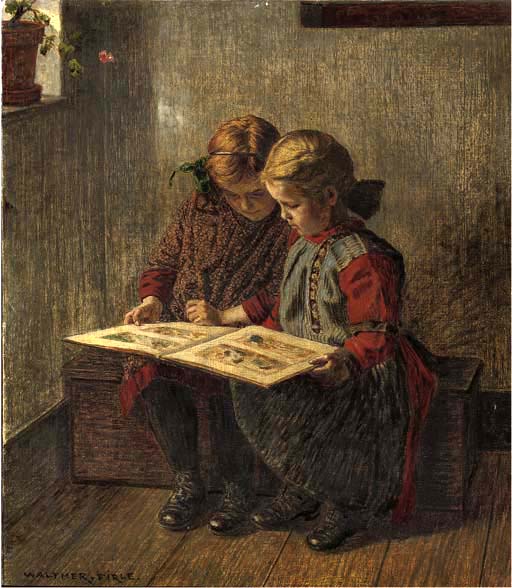By Rania Tsoli,
Books: some see them as windows to alternate universes, away from any troubles or burdensome parts of reality, while others simply cannot view them as a way to get some rest and entertain themselves; to them, books are a mere obligation which they constantly steer away from. Loving books from a particularly young age, I mostly relate to the first point of view, but now that I’m in my early adult years, I have found myself lacking eagerness to read a book at times. Whether you think of yourself as a bookworm, that for some reason is not that attracted to books anymore, or as someone who doesn’t really like reading all that much, if you feel like changing your current state, I have good news: you most certainly can. Let’s start by exploring the reasons that lie behind the estrangement between one and their shelf full of unread books, in order to afterwards dive into all the tips and solutions that can help.
The reasons why people don’t get into reading as much or abandon it as they grow up are plenty, with the main having to do with one’s childhood, how they grew up and whether or not they had been introduced to reading from a young age. Especially now that we find ourselves in the modern times, with technology taking leaps and people growing more and more used to its power, children are not so much introduced to books as they are to tablets and television. A lot of today’s kids has stopped caring about books, with video games and TV shows being children’s main source of entertainment – why? Simply because that is what they have mostly been exposed to from a very young age. It is nowadays more than common for parents to introduce their children to computers, online games, and television series, often in order to be able to rest from today’s endless responsibilities and manage to relax while their children are preoccupied once in a while.
In addition to that, however, children are also known “copycats”, mimicking their parents, guardians, and adult role models’ actions on the daily. That is one of the main ways that they start developing their personality and learning about the world; through their grown-ups’ actions more than their grown-ups’ words. Adults turn to technology as they grow up as well, going from buying a book in a small, cozy bookstore to purchasing an audiobook in mere seconds on their smartphone; and whether they decide to actually listen to the book they bought online or opt for the latest episode of the series they are currently watching instead is a whole other conversation. Of course, reading a book online or listening to a book is not a bad thing; however, without thorough communication, a child might see their parents on their phone or laptop and not figure out that they are actually enjoying a book, since they don’t naturally associate technology with reading.

Besides their parents or guardians, school also plays an extremely important role in a child’s connection to books. Even since kindergarten, children are often in touch with books and fairytales that their teachers read to them, and many fall in love with the process. However, they soon learn how to read, but reading a book by yourself can certainly be frustrating for a little kid; when you have to sound each word out slowly, it takes some time to understand what you’re actually reading, with the exhilaration and excitement of the plot turning out to be vastly reduced due to the child’s reading speed.
Suddenly, the book full of fairytales seems to lose its magic, and the child turns to the television, instead. As they grow up and go to primary school, books seem to be even less fun, both because they are now exposed to schoolbooks on a daily basis, making it seem as if all books are a chore or a source of homework, but because they are asked to read and analyse literature books for school, as well. When children are given a book to read for a class, they often lose the opportunity to decipher the plot and meaning behind the characters’ actions as they see fit. Instead, their thoughts need to match the textbook, while they can’t properly enjoy the book when they have to analyse each and every sentence, in order to do well on the literature test in school.
Fast forward to middle school and high school, where teenagers are severely over-scheduled with hobbies and amounts of homework that grow heavier as the years go by, reading a book for pleasure is now extremely rare. That, along with the peer pressure that teenagers experience on the daily, where reading books may be seen as nerdy or lame, makes soon-to-be adults less and less eager to read. Apart from the reasons why a child turns away from books while growing up, however, adults who loved reading as children are also commonly prone to losing touch with their inner bookworm. One of the main and most obvious reasons to a young adult making it on his own is that books can often be quite expensive.

Having to pay for their bills and food themselves, instead of living with their parents, the term “pocket money” sort of ceases to exist. A book not only stops looking like a good investment in knowledge and entertainment, but even gradually starts looking like a waste of money, instead. Furthermore, in today’s times, many people seem to be on their feet all day, running errands and having a full schedule on the regular. There seems to be no time to curl up and read even a few pages of a good book, given how hectic each day can prove to be.
The reasons why one eventually stops reading – or never really have the opportunity to grow connected to books in the first place – are plenty. However, there are thankfully also plenty of ways to start reading, whether that is again or for the first time. Combining reading with technology is a good way to start: opting for e-books, audiobooks and book podcasts is a good way for a person living in the modern times to get familiar with reading. But, if you prefer traditional books and don’t like the feeling of reading on a device like a phone or tablet, the key is to take it slow: start by taking a book with you whenever you can, and reading while standing in line, on the bus or subway, or when you need a break from your daily stroll and decide to rest on a bench for a little bit. Turning to a book instead of your phone in occasions like the ones mentioned above can prove to be extremely beneficial for your relationship with reading.
If you don’t know where to start, try a young adult novel or a thriller: these types of genre are engineered to hook you almost instantly, which is exactly what we are trying to accomplish. Another helpful tip would be to read the first three chapters of a book right away: even the most suspenseful books take a chapter or two to get to the action, which is why you need to give yourself the time and space to actually get lost in a book and the mysteries of a thriller or plot twists of a young adult novel. However, if a novel seems too overwhelming for you, you can try a collection of short stories or a poetry book, instead; building your connection with reading slowly is most definitely not a bad thing.

Moreover, reading with friends can prove to be both fun and helpful: just like watching a series together, you can talk about the events that take place in the book and make a weekly evening out of it; you can view it like a book club of your own, while joining an actual book club can also prove to be a particularly good idea. Finally, an important thing to remember is to not pressure yourself into reading a book that you’re not really into: by making yourself read something which you are no longer interested in, you make yourself gradually turn away from reading once again, and without even realising it, too. You start associating reading with that bad experience of a book you didn’t enjoy, and soon, you are back at the start, seeing reading as a “chore”, and avoiding it once again.
Turning away from reading books for pleasure is an extremely common phenomenon. Getting into a book while having a full schedule and being constantly distracted by technology and social media is admittedly a hard task, especially if you haven’t ever had the chance to develop an affection for books in the first place. Thankfully, there are many ways to reverse the situation, with finding the right genre to get you hooked and making it a group activity with a friend of yours being only a few of the things you can try. Books are truly magical, and no matter how long it might seem like their magic has gone missing, you can always find it again.
References
- Why Children Stop Reading And What To Do About It, giftedguru.com, Available here
- Why We Don’t Read, thoughtco.com, Available here
- The Fastest Way to Get Back into Reading Books, teaandlinksociety.com, Available here
- Have you stopped reading? Here are ten ways to get back to books, scroll.in, Available here




